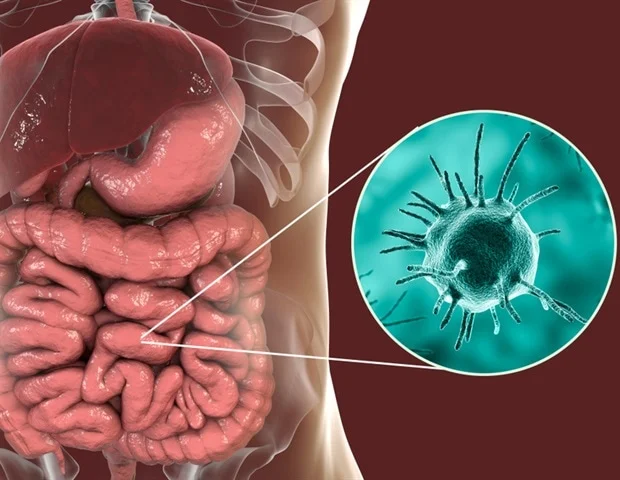Becoming a parent is often described as one of the most joyful experiences in life. But for many women, the time after giving birth brings unexpected emotions, stress, and sadness. This condition is called postnatal depression, and it affects more women than you might think. Thankfully, help is available—including depression treatment in Ontario and other supportive resources.
In this article, we’ll explore what postnatal depression is, what causes it, signs to watch for, and how to manage it with practical tips and professional support. Whether you’re a new mom or someone supporting one, this guide offers insight and compassion from a mental health expert with a decade of experience.
What is Postnatal Depression?
Postnatal depression (PND) is a type of depression that affects women after childbirth. It usually develops within the first few weeks or months after giving birth. This is more than just the “baby blues,” which are brief and common mood swings caused by hormonal shifts. Postnatal depression is deeper, lasts longer, and can interfere with a mother’s ability to care for herself and her baby.
What Causes Postnatal Depression?
Postnatal depression doesn’t have one clear cause. It often results from a mix of emotional, physical, and lifestyle factors, including:
- Hormonal changes: After delivery, estrogen and progesterone levels drop sharply, which can trigger mood changes.
- Lack of sleep: New moms rarely sleep well, and sleep deprivation can seriously affect mental health.
- Life adjustment: Caring for a baby is a huge change. It can feel overwhelming, especially without enough support.
- Personal history: A woman with a past experience of depression or anxiety may be more at risk.
Signs and Symptoms of Postnatal Depression
It’s important to know that postnatal depression looks different for everyone. Still, here are common symptoms to look out for:
- Feeling hopeless, empty, or sad most of the day
- Lack of interest or joy in things that used to make you happy
- Struggling to bond with your baby
- Feeling tired all the time or having trouble sleeping
- Thoughts of harming yourself or your baby
- Withdrawal from family and friends
- Difficulty thinking clearly or making decisions
If you or someone you love shows these signs, it’s essential to seek mental health services right away.
How Common is Postnatal Depression?
Studies show that 1 in 7 women experience postnatal depression. That number might even be higher because many women don’t talk about their feelings due to shame or fear of judgment. Remember, struggling with mental health after birth does not mean you’re a bad mom—it means you’re human.
The Importance of Professional Support
One of the most important steps in healing is recognizing that you don’t have to go through this alone. Seeking depression treatment is a sign of strength, not weakness. In Ontario, a wide range of mental health professionals—therapists, psychiatrists, social workers—are trained to help new moms navigate postnatal depression.
Working with a mental health provider helps you:
- Talk through your feelings in a safe space
- Get personalized coping strategies
- Understand your symptoms
- Possibly explore medication if needed
The earlier you seek help, the sooner you’ll start to feel better.
Tips to Cope with Postnatal Depression
While therapy and professional help are key, there are also several things you can do at home to support your recovery.
1. Talk About It
Opening up to your partner, family, or a close friend can lighten the emotional burden. Many women feel ashamed of their feelings, but talking can be incredibly freeing. You may be surprised to find how many others have gone through the same thing.
2. Ask for Help
Don’t try to do everything alone. Let others cook a meal, change a diaper, or babysit while you nap. It takes a village to raise a child—and to support a new mom. Lean on your support system and let them know what you need.
3. Rest and Sleep
Sleep might feel impossible with a newborn, but even short naps throughout the day can improve your mood and energy. Try to sleep when your baby sleeps and don’t feel guilty about resting.
4. Nourish Your Body
A healthy diet doesn’t need to be complicated. Aim for balanced meals with fruits, vegetables, protein, and whole grains. Drinking water and avoiding too much caffeine or sugar can also help you feel better mentally and physically.
5. Light Exercise
Moving your body can help boost your mood. Start small: a gentle walk outside, some light stretching, or postnatal yoga can make a big difference. The goal isn’t fitness—it’s wellness.
6. Join a Support Group
There are many mom-and-baby support groups, both online and in-person, where you can connect with other moms going through similar challenges. Sharing your story and hearing others’ can help you feel less alone.
7. Use Mental Health Services Available in Ontario
If you’re in Ontario, you have access to mental health services that specialize in postpartum care. Many of these services are free or covered by insurance. Don’t wait until things feel unbearable—early support leads to better outcomes.
Commercial Spotlight – Renewed Mental Health Group
At Renewed Mental Health Group, we understand the silent struggles many women face after giving birth. Our team of compassionate therapists and mental health professionals provides personalized depression treatment plans tailored for new moms in Ontario.
We offer both in-person and virtual therapy sessions, so help is available from the comfort of your home. Our services are designed to fit your schedule, honor your experience, and guide you gently toward healing. Whether you’re dealing with depression, anxiety, or simply need someone to talk to, we’re here to help.
Let us help you rediscover joy, one step at a time.
When to See a Doctor?
If your symptoms last longer than two weeks, interfere with daily life, or include thoughts of harming yourself or your baby, see a doctor immediately. Postnatal depression is a medical condition—like high blood pressure or diabetes—and it requires proper care.
Also, if your partner notices you’re withdrawing or acting differently, listen with an open heart. They care and may be seeing things you can’t in the moment.
Final Verdict
Postnatal depression is real, it’s common, and it’s treatable. There’s no shame in needing help. You deserve to feel good again—not just for your baby, but for yourself. Ontario offers a strong network of support systems, from community clinics to online resources.
Taking the first step might feel hard, but healing begins the moment you reach out. With a mix of self-care, professional support, and the right depression treatment, you can get through this—and come out stronger.
If you’re struggling with both depression and anxiety, don’t hesitate to explore anxiety treatment in Ontario as well. The right help can make all the difference.
















1 Comment